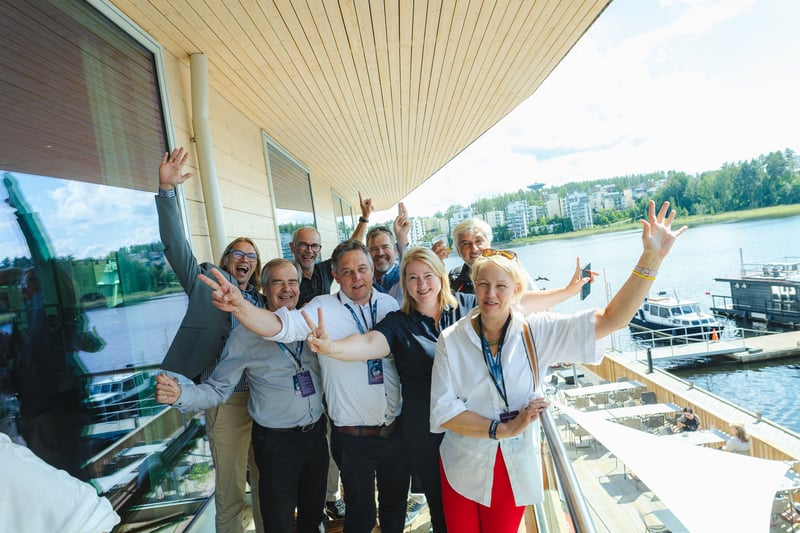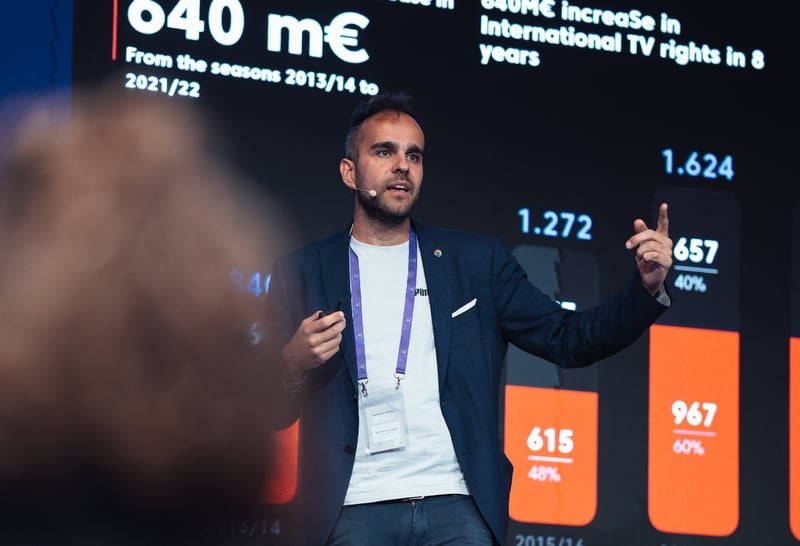The collaboration between the City of Jyväskylä, the University of Jyväskylä's Faculty of Sports Science and Athletic Club, which began in 2021, has so far largely focused on research and development of business cooperation.
This cooperation will now be followed by club level collaboration, when the EU's Erasmus+ Sport funding granted to JJK Juniorit, Jyväskylä's leading junior football club, will enable two visits for them to learn more about Athletic Club's junior work on site in Spain. The funding application was created in cooperation between the university, the city, and the club.
Erasmus+ Sport funding is intended for the development of grassroots activities. JJK Juniorit focus especially on developing communality and equality. The themes are also linked to the ongoing merger process, where JJK and JyPK will form a joint junior football organization by the turn of the year.
Concrete ideas for developing community spirit
Athletic Club is known for its exceptionally strong social position in the Bilbao region. One of the key aims of the visits is to gain an understanding of Athletic Club's way of developing a strong sense of community and club culture.
“Now that we are building a common identity with JyPK, this is a very topical issue for us,” says Ari Laiho, Executive Manager of JJK Juniorit.
Since Athletic Club only accepts players with a Basque background, they practically grow their own players. A lot of work is being done in the club to promote communality.
“Athletic Club makes children fall in love with their hobby and get attached to their club to the extent that some even want to make a career there. This is also what we want,” says Laiho.
Johanna Ihalainen, a university lecturer active in cooperation projects between Jyväskylä and Bilbao, emphasizes a lower drop-out rate as one of the benefits of a strong sense of community.
“At best, football can be a really big part of a child's and a young person's life. A strong sense of community keeps the individual involved in the activity, even if the competition orientation should come to an end,” she comments.
According to Laiho, Finnish football expertise and coaching are advanced by many indicators and are top-class Europe-wide. The high pedagogical level of coaching is reflected, for example, in the fact that half of JJK Juniorit’s coaches are trained education or sports experts or students.
“But we could invest more in strengthening the club culture in Finland. I'm sure this is an area where we will get new ideas from Bilbao,” he says.
From boys' and girls' soccer to children's and youth soccer
Another focus area of the trips to Bilbao is equality. In practice, it manifests in the plan of JJK Juniorit and JyPK to move from girls' and boys' soccer to children's and youth soccer.
“In the future, we will be offering the same sport, the same quality and the same standards at the same level of requirements for all children and young people. We want to see and experience what kinds of results high-quality coaching will achieve among them,” Laiho says.
According to Ihalainen, Athletic Club has done persistent work to strengthen, for example, the position of women's football and career paths there. This work is now bearing fruit.
“In Spain, women's football is professional football and clearly has its own value in Bilbao. The aim is to offer young people top-quality training and opportunities for development, as well as professional careers,” she says.
Player paths for all enthusiasts
Simon Walker, a member of the JJK board and researcher at the University of Jyväskylä, expects the cooperation to also produce ideas for the development of regional cooperation networks – including across the boundaries of different sports forms.
JJK Juniorit’s cooperation network includes JyPK, FC Vaajakoski, Muuramen Yritys, LKP Laukaa, Keuruun Pallo, Jämsänkosken Ilves and Äänekosken Huima.
“JJK Juniorit is already cooperating actively with these clubs, but new ideas are always welcome. I’m sure we will get them,” he says.
“It is particularly interesting to hear how cooperation works between different types of sports clubs, and what kind of physical activity cluster has been created in Bilbao.”
Walker points out that a junior organization always has a much greater role than cultivating individual top players.
“We help children and young people to grow into adults,” he says.
The educational work requires that the clubs offer a wide variety of paths for practicing football. Laiho is looking forward to hearing what kind of an entity children's activities around football has morphed into at Athletic Club.
“Not only the player's path from a child to a full-fledged adult professional, but also what other paths are available – how the hobby continues for those who do not aim to become top players,” he says.
Sharing the learnings with Central Finland clubs
The first introductory meeting will be held in Jyväskylä in August when guests from Athletic Club arrive for the Business Rally event. In addition to JJK Juniorit, the guests from Bilbao will be shown the activities of the University of Jyväskylä and Finnish Institute of High Performance Sport Kihu.
JJK Juniorit’s trips to Bilbao will take place over 5–7 days in September and November. The focus of the September visit is learning how the club's administration and activities are arranged, while the group traveling to Bilbao in November will be made up of coaches. One of the key aims of the project is that the coaching skills of club operatives will develop further.
Lessons learned from the Erasmus+ Sport funded trips will be presented at a conclusion seminar open to all next spring. Travel reports will also be made publicly available to those interested in them.
Laiho emphasizes that the cooperation will contribute to developing skill sets in the entire region.
“All the lessons we learn from this cooperation will radiate to other organizations. We have a common goal, and the more clubs know how to do better and higher-quality junior work and are able to do it, the better the whole field works,” he sums up.
In the photo: The Erasmus+ funding for JJK Juniors is a fine example of cooperation between the University of Jyväskylä, the city and the sports club. “It doesn't matter what organization or position you're in – if you really want to get things done, it is possible by working together,” rejoices Nina Rautiainen, Project Manager at the City of Jyväskylä (on the right). In the photo from the left Simon Walker, Ari Laiho and Johanna Ihalainen. The project’s active participants also include Eero Savolainen, PhD researcher at the University of Jyväskylä, who is missing from the photo.
For more information please contact
Eero Savolainen, University of Jyväskylä
eero.h.j.savolainen@jyu.fi
tel. +358 50 577 5734



